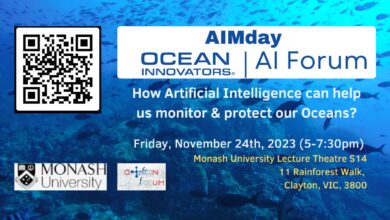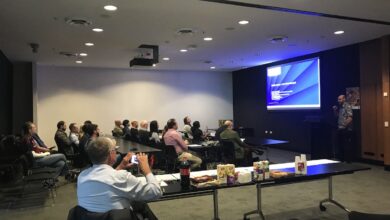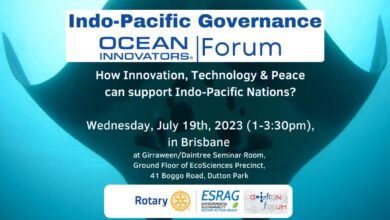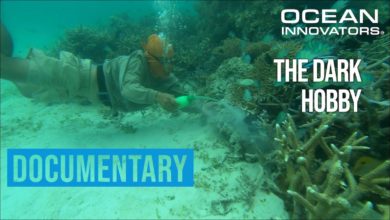Mauritian Wildlife Foundation: Solutions to contain the oil spill in Mauritius
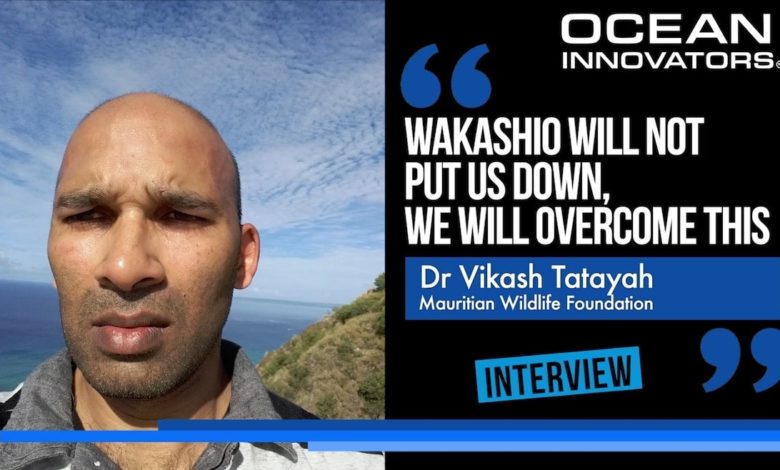
- The crisis
- The foundation and its purpose
- How MWF is tackling the oil spill crisis
- How to help?
The Mauritian Wildlife Foundation is at the forefront of the response saving wildlife from the MV Wakashio oil spill. Since the end of July, the local community has done an incredible job. Still, the challenges for the wildlife and coast caused by the oil spill haven’t stopped. Read more in this article and support the Foundation today!
The crisis
According to publications from Greenpeace, BBC, and Forbes, the MV Wakashio, containing about 4000 tonnes of oil, ran aground on the reefs at Pointe d’Esny in Mauritius on 25 July 2020. It started spilling oil 12 days later in environmentally sensitive areas and UNESCO Ramsar sites. Iceye satellite imagery shows the spill covering 27 km2 as of 11 August 2020. Indeed, this catastrophe has compromised marine ecosystems, livelihoods of fisherfolk, health of local communities, food security, tourism, and the blue economy.
How do you protect species and ensure restoration of marine wildlife after an oil spill? What are the biggest challenges to overcome? How can we be better prepared to deal with such a crisis in the future?
Our Ocean innovator today is the conservation director of the Mauritian Wildlife Foundation (MWF), Dr. Vikash Tatayah. He has been active in conservation for over 23 years. He manages conservation programmes that have allowed the recovery of a long list of threatened plants and animals. Additionally, Dr. Vikash Tatayah participates in fundraising for the foundation and is the link with the government of Mauritius on national conservation where he has been consulted for the Wakashio wreck oil spill.
The foundation and its purpose
The Mauritian Wildlife Foundation (MWF) is the largest NGO in Mauritius working exclusively on the conservation and preservation of endangered plant and animal species. Their work spans over national parks, nature reserves, and small islands around Mauritius. The foundation was initially created in 1984 to save species on the brink of extinction, and to this date, this has been their main line of work.
Its main goals are to protect species from extinction, restore ecosystems, undertake research and captive studies, share knowledge with international conservationists, raise awareness about conservation issues, and promote ecotourism. Some major bird conservation programmes successfully saved a number of species from extinction, namely the Mauritius Kestrel, the Pink Pigeon, the Echo Parakeet, the Rodrigues Fody, and Rodrigues Warbler. MWF has also taken over the management of islands, out of which 2 important ones are Ile aux Aigrettes and Round Island.
How MWF is tackling the oil spill crisis
The Wakashio oil spill is an issue of great concern to MWF because it happened 2 km from Ile aux Aigrettes, a key nature reserve that the foundation has worked hard to restore over the past 38 years. It also affected four other islands as well as 2 Ramsar sites of international importance. The foundation promptly started collaborating with the Mauritian government to agree on responses to the crisis. MWF also engages in national and international communication to try to generate constructive actions pertaining to the long-term restoration process.
It has been a steep learning curve for all stakeholders involved, be it the government or the NGOs, since this is the first oil spill crisis Mauritius has faced. MWF has learnt many lessons to tackle environmental catastrophes in the future, should such a crisis hit again. Hence, the foundation intends to be far more proactive and far more responsive to an oil spill in the future to limit the ecological damage.
The biggest challenge has been funding. The Covid-19 pandemic has exacerbated this issue as the Mauritian borders are closed and international qualified volunteers and staff cannot assist MWF as is the norm. The foundation generates 20% of its income from ecotourism, which has been suspended by the pandemic. Another major difficulty is that staff cannot go out on-site, as per health and safety concerns linked to the oil spill. Therefore, they cannot invest the required time and efforts into the detailed monitoring that MWF usually performs.
How to help?
The most valuable form of help right now is to support the foundation by spreading the word about MWF, helping with fundraising campaigns, and assisting MWF in recruiting qualified people who can come and work on the ground.
Our Ocean Innovator today wishes to convey a message of resilience: “Wakashio will not put us down”. Despite the challenges that this crisis presents, they can be overcome with the power of people.
You can support directly the Mauritian Wildlife Foundation by donating:
- The MWF website: https://www.mauritian-wildlife.org/donate mentioning “Wakashio”
- GoFundMe: https://gf.me/u/ypit3h
- Just Giving: https://www.justgiving.com/crowdfunding/mauritiusoilspill?utm_term=Kpe267wPw
- Small Step Matters: https://www.smallstepmatters.org/en/projets/environnement/ref105991-ansampounoulagon-wakashio-un-desastre-ecologique-mobilisons-nous/
- Direct bank transfer:
MWF Wakashio Fund
Mauritian Wildlife Foundation
Mauritius Commercial Bank,
Port Louis, Mauritius
Swift BIC: MCBLMUMU
Account number: 000 010204792
IBAN : MU52MCBL0901000000204792000MUR
You can follow the journey of the Mauritian Wildlife Foundation directly on their website, Facebook, and Instagram pages.



